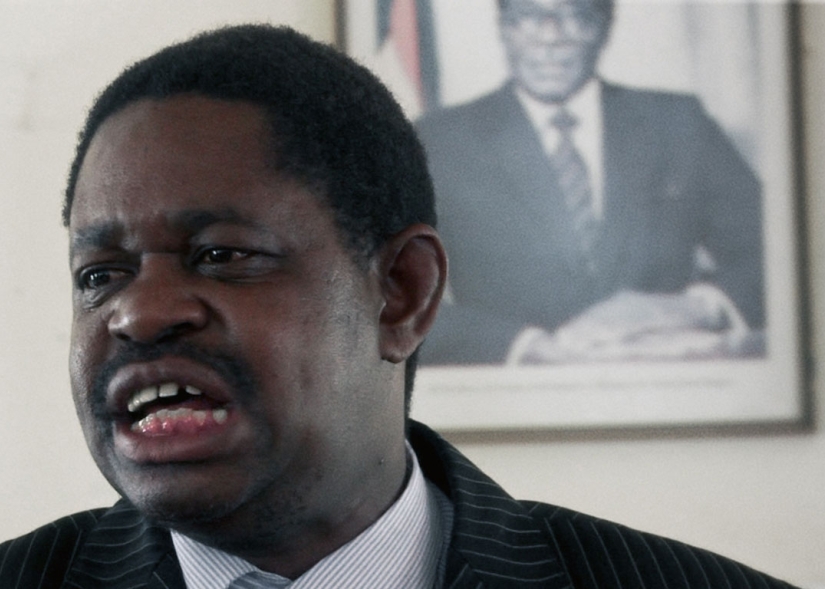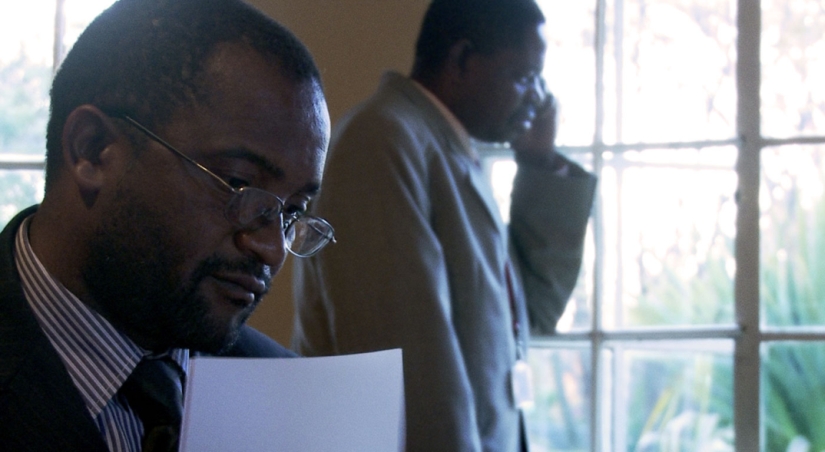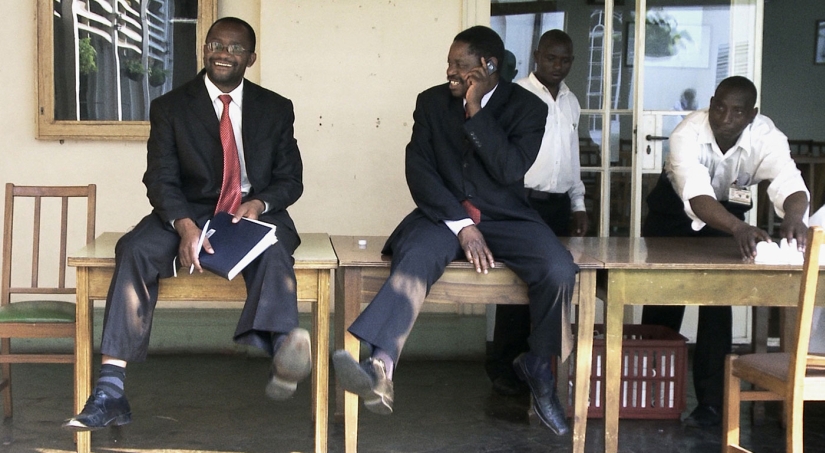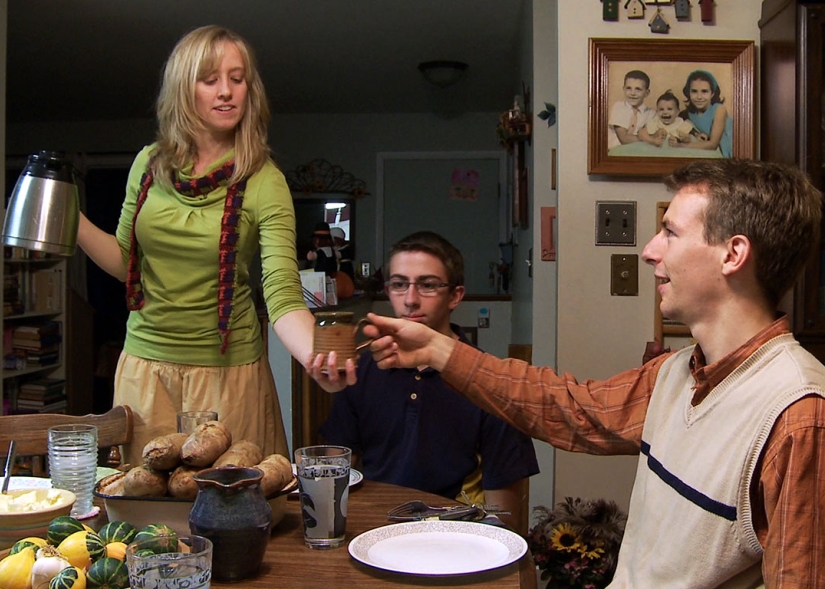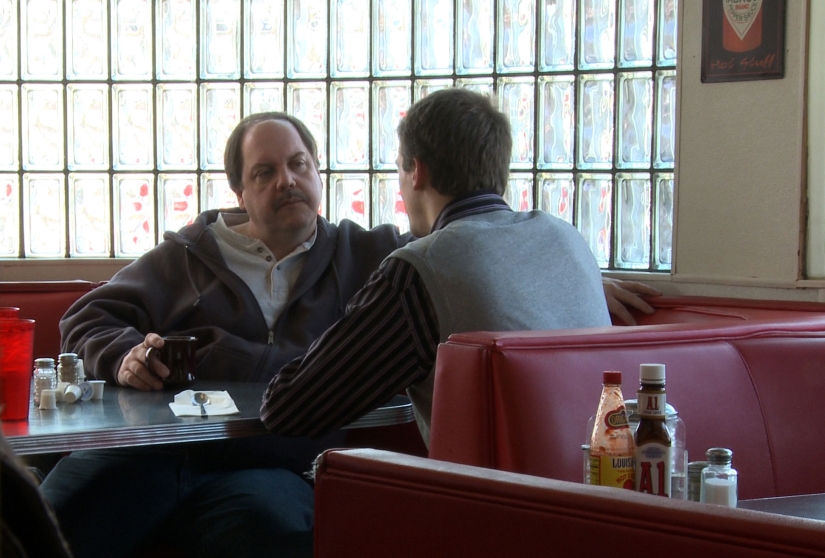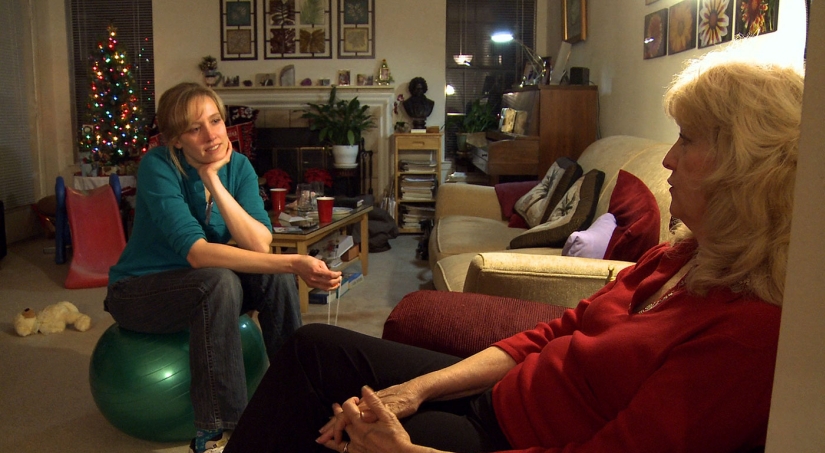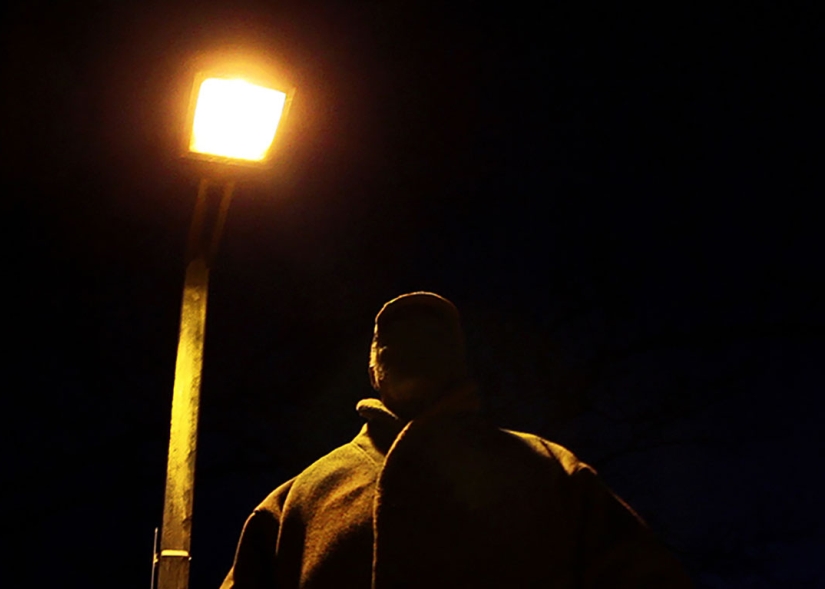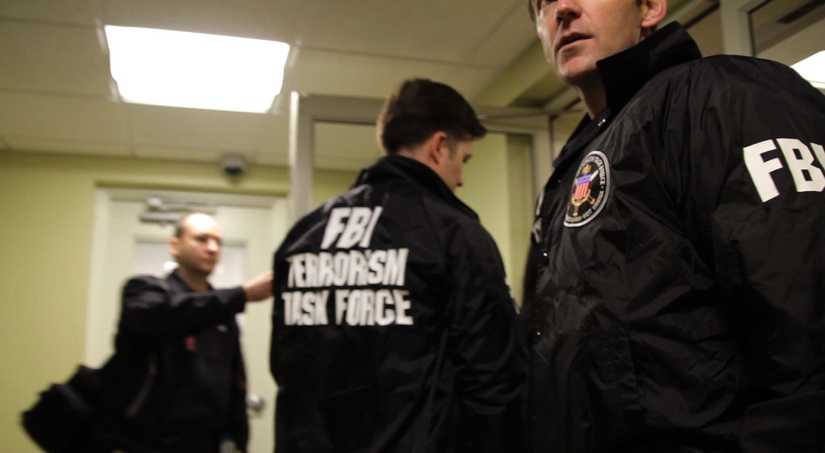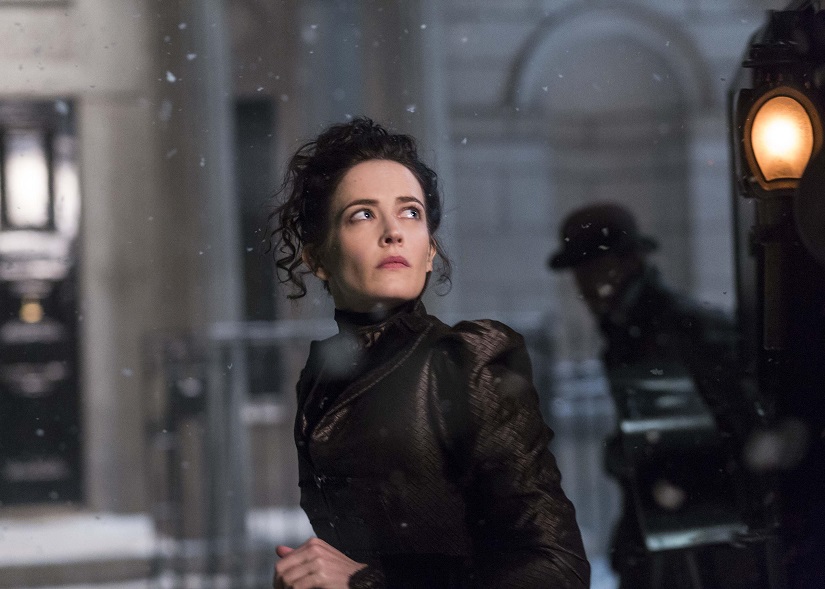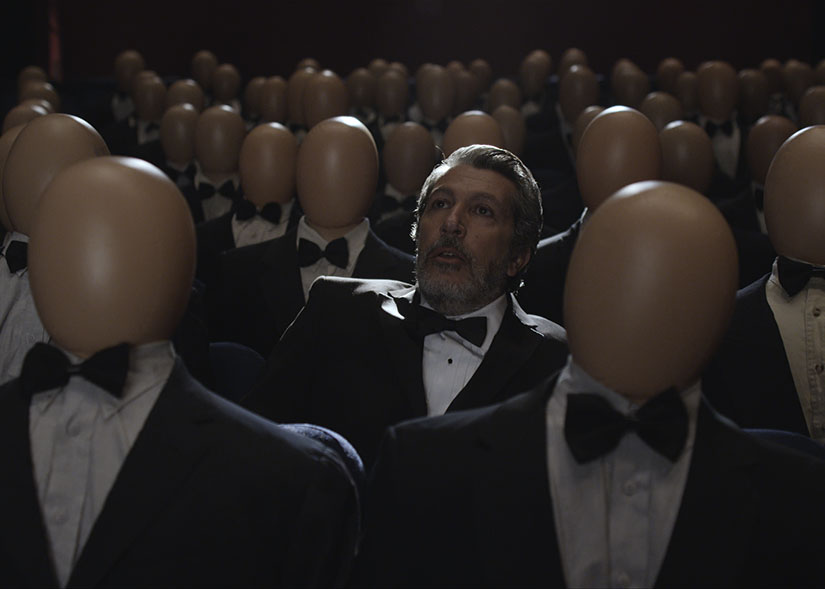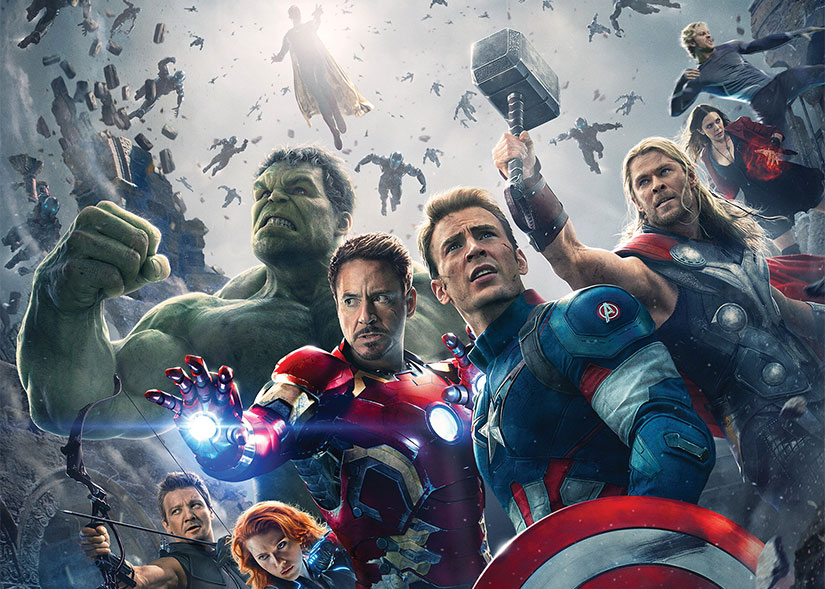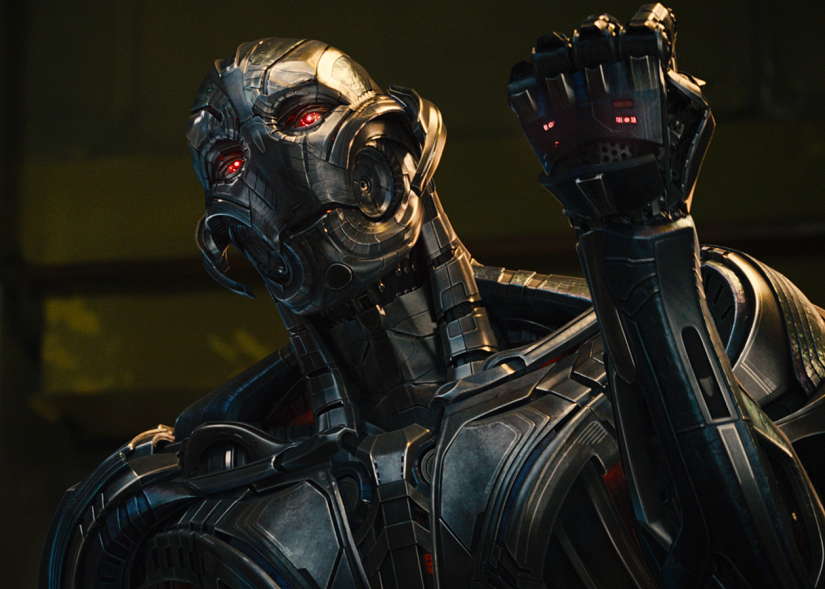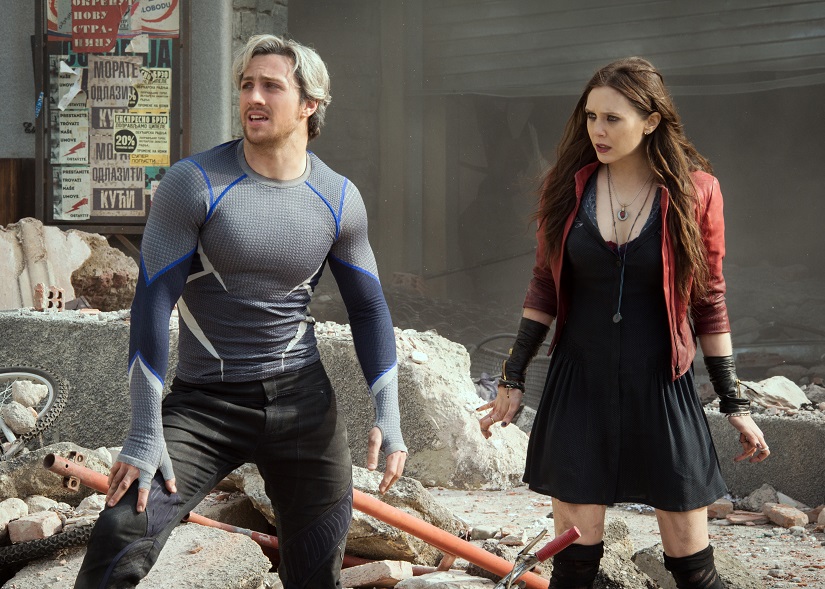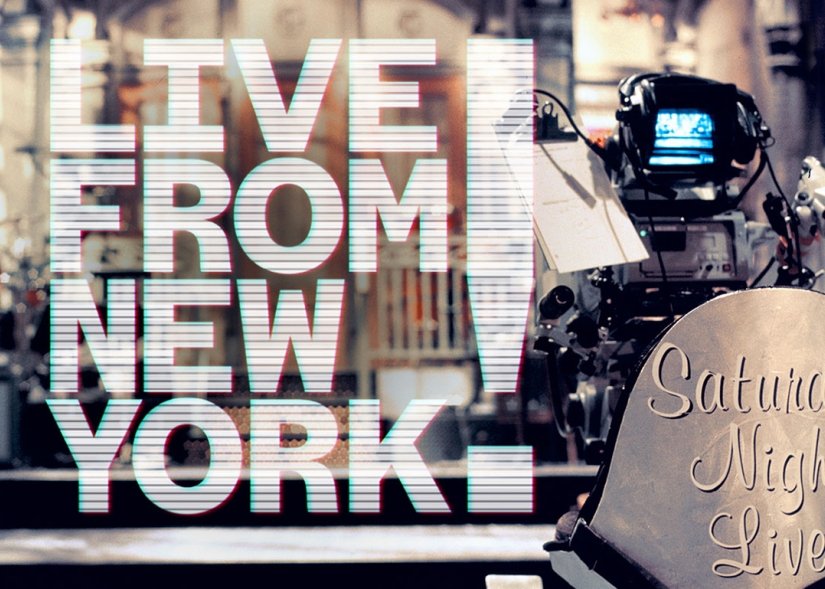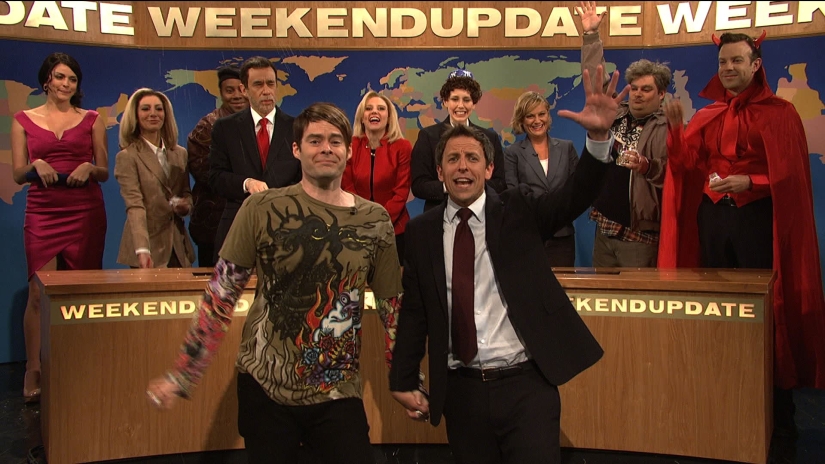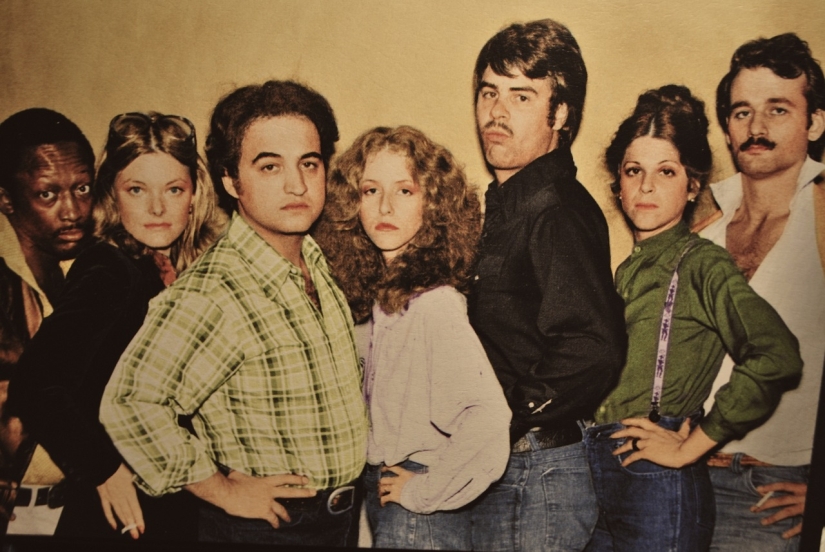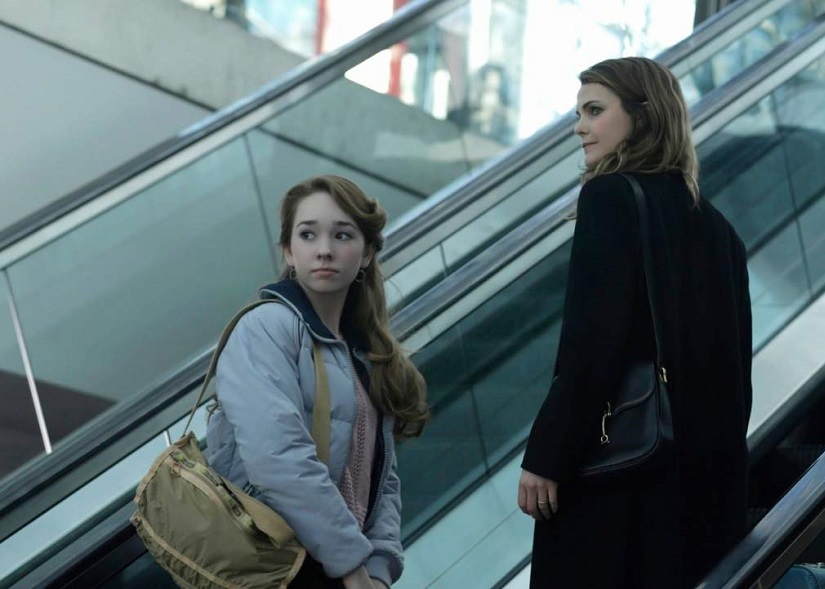[Tribeca Review] Democrats
Knowing that dictator Robert Mugabe is still the leader of Zimbabwe doesn't detract from the drama of Camilla Nielsson's documentary Democrats. The film covers the drafting of the country's new constitution, and while recent history is technically a spoiler, the intrigue comes from watching the struggle of ideologies embodied by two opposing individuals. Our primary subjects are Paul Mangwana, who represents Mugabe's ruling ZANU-PF party, and Douglas Mwonzora, who represents the reform-minded opposition MDC-T.
Democrats is about the political process and its headaches, and about a struggle taking place over the course of three years. Nielsson has remarkable access to her two primary subjects and captures many of the impasses and compromises over this stretch of time. She also chronicles various calculated (and corrupt) maneuvers made by ZANU-PF to suppress the opposition. Mangwana smiles as he discusses some of these power plays on camera. He senses, he knows, that the power of the people is often nothing when compared to the power of the state.
Democrats
Director: Camilla Nielsson
Rating: N/A
Release Date: TBD
Early in the film, we see the influence of Mugabe's cult of personality as well as his strong-arm tactics. The arms of the Mugabe government beat voters, they suppress voices, they intimidate opposition. Open constitutional meetings are held with average citizens voicing their political wishes. Those loyal to ZANU-PF pledge fealty to Mugabe and the status quo. Opposing voices feel pressured to remain quiet under threat of violence and imprisonment. ZANU-PF uses other methods of misdirection to squelch dissenting voices, and they don't try that hard to conceal them.
All the while, Mangwana laughs.
His party controls many of the instruments of accountability. No one else can hold them accountable without being threatened. This includes members of the press. Given all this, Mangwana's confident transparency is both refreshing as well as disheartening.
As the face of the political opposition, Mwonzora is high-minded and carries himself with grace and patience. All of these qualities are necessary given the power imbalance MDC-T faces. Like the best political idealists, he's driven by optimism and the belief that concerned people can make a difference. It just takes a lot of effort and time, and that's the problem. Who has the privilege of either given the state of the country? An underlying tension throughout Democrats is how much frustration and setback Mwonzora can take. It's hard not to see the cracks in the brave facade, and it's harder still to not admire this sort of resolve.
Even though stretches of Democrats are built around meetings and party discussions, Nielsson does an admirable job of making the various political maneuvers understandable and engaging. This is thanks in large part to the personalities of Mwonzora and Mangwana, who make excellent foils for one another. We're watching a series of moves made for the political long-game and short-game in Zimbabwe, and it'll be interesting to see what change, if any, eventually comes about.
At one point of Democrats, Mangwana laughs and smiles at the camera as he talks-up the power of the Mugabe government. They have the police, they have the courts, they have so many systems in place against dissenters. Mangwana asks what power words and a legal understanding can make given this disparity. We learn in Democrats what difference they make to the process, but outside the film, we'll have to wait for a definitive answer.
[Tribeca Review] A Courtship
Dating can be awful, but there are worse alternatives. Take the act of Christian Courtship, which is the subject of Amy Kohn's documentary A Courtship. To practice Christian courtship is to save yourself completely for marriage, including your first kiss. The playful snogging in the school yard is done in the devil's territory.
Christian Courtship gets even worse and more bizarre, ultimately forcing women into passivity as they wait for a knight in shining armor to rescue them from the supposed plight of single life. (It's fitting that official Courtship material about the sanctity of a first kiss is sold in form of a picture book/fairy tale.) The women who practice Courtship claim that they are submitting to God's will, but they're really submitting to an antiquated Biblical patriarchy that justifies their treatment as chattel.
See—way worse than dating.
A Courtship
Director: Amy Kohn
Rating: N/A
Release Date: April 18, 2015 (Tribeca)
Kohn's primary focus is a woman named Kelly. She lives with the Wright family, a Courtship-loving family in the Grand Rapids, Michigan area. Ron Wright, the head of the household and Kelly's father-figure, screens all suitors before Kelly even meets them. It's a cross between speed-date and job interview. Ron goes on more dates with these men than Kelly does because Kelly usually isn't allowed to meet the suitor unless the man meets Ron's approval first.
Kelly is 33 years old.
The following becomes apparent while watching A Courtship: Kelly has the same level of maturity about love and relationships as the two Wright daughters, one pre-pubertal and the other adolescent. Unlike the Wright daughters, however, Kelly doesn't have her first kiss to give, which is a deal breaker for some men in the Courtship community.
Again, Kelly is 33 years old.
When it comes to documentaries like A Courtship, there's a question of tone to consider. Are we supposed to mock the subjects or be sympathetic and empathetic to them? Kohn manages a bit of both. It's hard for me not to disparage Courtship as a practice since it's so backwards, so anti-feminist, so anti-modernity. Courtship robs women of agency and, as a theological disagreement in the film shows, devalues their personal beliefs and personhood.
It's also hard for me not to be critical of Ron and Dawn Wright, who push Courtship on their household. Yet by allowing Ron and Dawn to discuss their own marriage with candor, Kohn's discovers the justification for believing in Courtship. Even I'll admit that Courtship for the Wrights comes from a place of genuine (and suffocating) parental concern. On the other side, it's difficult to not feel bad for Kelly, who seems so wrapped up in the idea of marriage as something that will complete her existence, so afraid of being a disappointment to someone (though mostly a disappointment to herself) that she's opted for passivity. For her, it's better that passivity than the vulnerability that's necessary to love someone.
Kohn follows Kelly to visit her mother's house, where we learn a little bit more about Kelly's upbringing and her parents' relationship. There's a home movie of Kelly, just a little girl, sitting on a ball and bouncing up and down with joy, carefree. When Kelly tells her mom about Courtship, her mother offers one of the documentary's few dissenting opinions about the practice. During this discussion, Kelly sits on a yoga ball in a way that's a little too much like the home movie of her as a child. I'm hesitant to psychoanalyze, but the scene sadly makes sense.
[Tribeca Review] (T)ERROR
In Lyric R. Cabral and David Felix Sutcliffe's documentary (T)ERROR, good counterterrorism intelligence seems to be a secondary worry for Shariff. He's 63 years old, he's an ex-con, he's been an FBI informant for decades, and, most importantly, he has bills to pay. That's always in the back of his mind—he does this because he needs the work, and he'll do whatever he has to in order to keep getting work. The gigs involve glad-handing his way into Muslim communities, getting to know a person of interest, and trying to get that POI to incriminate himself so the FBI can do the rest.
Nevermind the actual motives of the POI, in this case a Muslim convert named Khalifah Al-Akili. It's all about the arrest. This is an operation of entrapment, pure and simple, but the FBI gets what the FBI wants. Shariff has no choice but to comply. When the film is fully in motion, (T)ERROR reveals the malleability of personal desperation and how government abuses are permissible under the shield of counterterrorism.
(T)ERROR
Directors: Lyric R. Cabral and David Felix Sutcliffe
Rating: N/A
Release Date: 4/16/2015 (Tribeca)
It's not just desperation that drives Shariff. (T)ERROR looks back on the arrest and incarceration of Tarik Shah, a jazz musician that Shariff helped convict. When we learn more about Shah and what he said and the way that Shariff coaxed it out of him, we sense a fundamental sense of desperation driving Shah's words. Even hypothetical allegiance to Al Qaeda is allegiance enough for arrest. The system isn't just corrupt, it's also absurd and is committed to keeping the poor and the marginalized down. Shariff used to be a black militant before the FBI gave him a chance to become an informant, and the cycle continues: marginalized groups used to incriminate and incarcerate other marginalized people.
In some ways, Shariff's job is like high-pressure sales—he entices the desperate on the behalf of the FBI, trying to close the deal and get them to say something, anything, incriminating. If Shariff closes, there's a chance he'll get called on again by the FBI to close another deal and get paid. The camera hangs on Shariff, going in and out of focus in a stylized way, catching him around corners of a room like he's the subject of some sort of surveillance. After a while, his quiet frustration reveals years of guilt. Maybe the camera is his conscience watching, judging. Shariff seems to know what he's doing is awful, but sometimes, like Shah knew, a person has to do whatever it takes to pay the bills. Works for the man, gets paid by the man, but then has to pay the man back. And that cycle continues too.
There's a small stretch of (T)ERROR that feels like it treads water, and while the material as a whole is engaging and important to explore, there's a lack of forward movement near the middle. The Tribeca Film Festival cut of (T)ERROR clocked in at 84 minutes, which is about 10 minutes leaner than the original world premiere cut that played at Sundance. It'd be interesting to see if Cabral and Sutcliffe continue to carve just a few minutes from the front end of the movie as it plays more festivals or nears distribution of some kind.
That lag I mentioned doesn't last too long, however, thanks to an unexpected shift in Cabral and Sutcliffe's focus. They remain strong documentarians when the shift comes, but they become better documentary journalists. Not only do we understand Shariff, but Shah and Al-Akili too. It makes all the desperation more painful. (T)ERROR humanizes everyone involved in this deal. Except for the FBI, of course. They refused to be interviewed, possibly because they'd incriminate themselves further.
[This Week In TV] Penny Dreadful; Big Bang Theory; New Girl
This Week in TV is a weekly feature reviewing the best, worst and most interesting episodes of television from the past seven days. The plan is to cover a wide variety of shows, but not always the same ones each week, so let us know in the comments which ones you’d particularly like to read about. This week sees Penny Dreadful return for a second season of Eva Green-starring gothic lunacy, Sheldon and Leonard's mothers paying the boys a visit in Big Bang Theory, and two departures in New Girl.
[Review] Reality
Reality
Director: Quentin Dupieux
Rating: N/A
Release Date: May 1, 2015 (VOD and IFC Center)
Quentin Dupieux is known for his subversive films that deconstruct the whole movie experience, from the art of filmmaking to the act of actually watching films, to varying degrees of success. Reality fits well alongside the rest of Dupieux's filmography, for better or worse. If you've seen Dupieux's films in the past (Rubber, Wrong, etc.) and didn't care for them, you won't feel differently about Reality. However, fans of the director will feel at home with the film.
Reality features a skewered narrative perspective in which we primarily follow Jason (Alain Chabat), a cooking show cameraman who dreams of filming a horror film involving killer TVs. A rich film producer Bob Marshall (Jonathan Lambert) agrees to fund the film, but on one condition: Jason must find cinema's perfect scream in 48 hours. As Jason frantically searches for the right scream, he descends into a twisted nightmare that resembles reality... unless the nightmare itself really is reality.
Interspersed in Jason's search are various subplots, including the cooking show host's (Jon Heder) imaginary eczema, Bob Marshall's problems with Zog (John Glover), another filmmaker he's financing who wastes film on mundane activities, Jason's wife Alice's (Elodie Bouchez) psychiatric meetings with elementary school principal Henri (Eric Wareheim), who himself is struggling to deal with a secret, and Reality (Kyla Kenedy), a student at Henri's school who can see everything and is being filmed by Zog. It's confusing, messy, intertwined, and I loved it all.
[youtube id="Qr6D6Z7IAAg"]
The reason why is due to the interrelationship Dupieux is creating between himself and his audience, himself and his film, the film and the audience, and the characters and audience. Each character is a viewer of another character's life and secrets, yet are unaware that they are being watched, creating the dichotomy of being both subject and viewer. While defining what is or isn't real is the purpose of films like Inception, the importance isn't so much drawn to the "what" in Reality; rather, the film is more interested in "why" reality isn't real. It's all perspective and perception, and Reality is able to embody those two elements within each of its various characters.
Reality, much like the rest of Dupieux's other films, will be eaten up by crowds that love to digest postmodern art, as well as cinephiles that love to deconstruct metafictional and avant-garde films. While it's not as coy and slick as Rubber, Reality may be Dupieux's best film in recent years. Again, it may not convince those who weren't mesmerized by past Dupieux films, but will be appreciated by the right audiences.
[Review] Avengers: Age Of Ultron
The Avengers was not just the movie which brought Marvel's cinematic universe heroes together on-screen for the first time, but also the one which found a consistent tone and philosophy for the series going forward. Looking back at the earliest movies in the canon, it's no surprise that despite their financial success, they tend to be all over the place in terms of tone and direction, heavy on formula but uncertain where to pitch their flag between the campy humour of comic book movies past and the heavy drama of Christopher Nolan's hugely successful Batman movies for DC.
It was at the hands of experienced comics writer Joss Whedon that Marvel found a sense of fun and self-awareness to bridge the disconnect between building a straight-faced fictional reality and the wisecracking, elaborately costumed protagonists populating it. As DC struggles to make fans care about its efforts to build a universe of its own defined by tortured heroes and depressingly over-filtered visuals, Marvel has gone from strength to strength on the back of Whedon's simple but appealing philosophy of keeping the characters relatable and the tone light. It's unfortunate, then, that Age Of Ultron does not mark Whedon once again taking the Marvel cinematic universe movies to new heights, but instead proves that even the most successful philosophy will struggle when weighed down by repetitive storytelling.
[youtube id="JAUoeqvedMo"]
The Avengers: Age Of Ultron
Director: Joss Whedon
Rating: PG-13
Release Date: May 1st, 2015
The Avengers' success may have solidified the Marvel universe, but also allowed some core problems to go overlooked. It was and remains a blockbuster done right, hitting a near-perfect balance between large-scale action, pinpoint character writing (compare, for instance, Whedon's Black Widow to her nondescript 'strong woman' portrayal in Iron Man 2) and humour. After taking $1.5bn at the box office worldwide, it's no surprise Marvel sought to replicate its success as closely as possible going forward. While this meant movies more ambitious in their scope and tonally unified throughout the series, it also too often reduced their narratives to a single, over-used formula. It boggles the mind to try and tally how many Macguffin-oriented plots, fake deaths, identikit character arcs and city-levelling finales have occurred in the four movies since the first Avengers, let alone those which were toying with the same ideas beforehand.
Age Of Ultron never looked likely to break that formula, but starts at a lively enough pace with a big set-piece as our eponymous heroes storm a HYDRA outpost in Eastern Europe. It gets us quickly into the swing of things, and Whedon is gifted enough with the off-handed zingers that the personalities of each individual hero are asserted without needing to pause for breath. What the team discovers also neatly lays down a potential dividing line between them based on how they perceive their ongoing role in defending the planet. Ultron presents a rare villain whose world-ending ambitions are rooted in a distinct way of thinking, one that can be clearly traced back to some of the decisions which led to his creation. It also allows him to recruit the Maximoff twins, whose supernatural powers bring another new kind of threat to the Marvel universe. So far, so good. Nothing groundbreaking, but tight, fun and brisk.
That promising start begins to falter once the heroes are given their first glimpse of the psychological manipulations of Wanda Maximoff, aka Scarlet Witch, in a set of sequences geared exclusively towards setting up future movies. This recalls the worst of Iron Man 2's indulgences in using its time to promote future movies rather than creating a worthwhile experience in the present. It also leads into a mid-point lull where Whedon, having so effortlessly integrated character and plot up to that point, grinds the movie to a halt for the sake of Capital Letter Character Development that not only retreads the same steps as previous movies, but almost entirely through static conversations taking place in the most blandly clichéd location imaginable. With the movie coming in at a laboured 140mins, it's hard to imagine how no-one thought to discard, at the very least, two vapid romantic subplots which clog up the pacing and never feel like anything other than writer-enforced indulgences.
In addition to the contrived writing, Whedon's biggest obstacle in making his characters relatable is the same as that which makes his action sequences feel so insubstantial. Iron Man 3 got a lot wrong, but one thing it understood, and The Avengers didn't, is that there needs to be a palpable sense of risk for its action to be any more meaningful than empty spectacle. As in the first Avengers, Whedon's heroes never take so much as a scratch, so their musings on death and loss come across as entirely hollow. The absence of danger means the action relies entirely on a sense of awe to remain entertaining, yet the CGI-heavy nature of each encounter renders each increasingly interchangeable and wearying, culminating in a climax lifted almost verbatim from the first Avengers, only replacing aliens with robots and Loki's wormhole generator for a Big Deadly Button.
Of the new ingredients, James Spader's voice work keeps Ultron interesting for longer than the character has any right to be, given how quickly the script abandons his initial existential angst in favour of generic supervillainhood and a subplot which ignores a key facet of his interconnected nature to facilitate the creation of The Vision. Vision himself feels entirely superfluous, showing no particularly noteworthy abilities beyond those already on offer from Iron Man and Thor, despite being at least visually striking and sharing an enjoyable exchange with Thor about the merits of a well-balanced hammer. Elizabeth Olsen's Scarlet Witch fares better than Aaron Taylor-Johnson's bland Quicksilver, if only for presenting a different kind of threat than punching or zapping. Once they are actually put to work, however, it is again difficult to discern what they bring to the table which one of the existing heroes could not have provided with minor adjustment.
Strip away the bombast and superfluous additions and it is the core cast which just about keeps the movie going even while the messy direction and clunky pacing are compounding around them. Downey Jr gives one of his stronger recent performances as Tony Stark, while Scarlett Johansson continues to layer pain into Black Widow's snark. Chris Hemsworth, Chris Evans and Mark Ruffalo are underserved with worthwhile material, but make the most of what they have. Jeremy Renner has the opposite problem, enjoying plenty of screentime, but most of it among the movie's most insufferable. That he manages to make the character likeable regardless is testament to the small notes of empathy and stoicism he finds in his character's interactions with others. A handful of cameos from the supporting cast of the individual hero movies, such as Don Cheadle's Rhodey, also make very welcome reminders of each hero's existence beyond the confines of the Avengers team.
If you are, unlike me, an avid comic book reader, the appeal of another two hours of watching these characters bounce off each other, verbally and physically, may be enough to make Age Of Ultron another worthwhile entry in Marvel's cinematic universe canon. No matter where you are coming from, though, it is difficult to imagine anyone seeing this as anything more than a case of returns diminished by repetition and playing safe, at worst an unnecessary stepping stone en route to the real showdown in Infinity War. Whedon remains quick of wit and matched by a terrific cast, but where the first Avengers gave Marvel a newfound confidence going forward on screen, Ultron is less a shot in the arm than a warning of how complacency can dull even the most vibrant pleasures into formulaic endurance tests.
[Tribeca Review] Live From New York!
It's not easy to render 40 years of history into a feature-length documentary. To do that, it's often important to provide an underlying path through history, one that can guide the viewer and the material in a purposeful way. With a path established, it's possible to diverge and return so that even the tangents along this path don't seem quite so tangential.
Bao Nguyen attempts to bring four decades of Saturday Night Live to life with Live from New York!, but the results are unfocused, sort of like the last half hour of sketches in most SNL episodes. A cohesive narrative throughline never emerges, so the history of the show is a shapeless mass of talking heads and best-of clips. We don't really arrive anywhere at the end because the film doesn't know where it's going.
Live From New York!
Director: Bao Nguyen
Rating: N/A
Release Date: April 15, 2015 (Tribeca)
This isn't like Saturday Night by Doug Hill and Jeff Weingrad, or Tom Shales' oral history Live From New York. The documentary is more like a DVD extra for the interminable Saturday Night Live 40th Anniversary Special. Whenever an interesting topic is raised that might guide the film—SNL's diversity problems, the show's place in the lineage of sketch comedy and late-night programming—it's summarily dropped to move on to something else. The film even buttresses its moments of critical self-reflection with a sense of intrinsic self-importance, that the institution of Saturday Night Live turning 40 is sufficient to warrant a film to celebrate the occasion.
Interviewees claim that everyone tunes in to Saturday Night Live to see what they'll say about a given cultural moment. I'm not sure SNL is the nation's most esteemed pulse-taker anymore. The Daily Show probably inherited that mantle in the last decade, and ditto its progeny, The Colbert Report and Last Week Tonight with John Oliver. These shows and their creative teams have become the nation's conscience as well as its reflecting pool and funhouse mirror. Stewart's voice appears in the intro to Live from New York!, yet he never appears on camera to discuss the new keepers of the late night flame. Colbert had auditioned for SNL at one time, but he's not present in the documentary either.
There's a slew of other gaps that the SNL documentary doesn't delve into. For instance, there's no mention of SNL's live improv roots via Second City, the Groundlings, the Upright Citizens Brigade, etc. Sinead O'Connor rips up a picture of Pope John Paul II, but where's Elvis Costello's "Radio, Radio" transgression that got him banned for 12 years, or the mayhem that caused $20,000 of damage when Fear was the musical guest? There's also a hodgepodge of interviewees, which probably came down to a question of availability. There's no Bill Murray interview or even Dan Akroyd, but Bill O'Reilly is in there for some reason.
I wonder if SNL in its current state remains on the air simply because it's been on television so long. It's a question a lot of others have probably wondered, and it would be fascinating to consider if longevity is its own kind of life support.
Just don't expect to find answers to that in Live from New York!
[This Week In TV] The Americans; Other Space; Inside Amy Schumer
This Week in TV is a weekly feature reviewing the best, worst and most interesting episodes of television from the past seven days. The plan is to cover a wide variety of shows, but not always the same ones each week, so let us know in the comments which ones you’d particularly like to read about. This week sees Cold War drama The Americans reach the end of its third season, Other Space mark the debut of a new sci-fi comedy from Yahoo, and the third season premiere of feminist sketch show Inside Amy Schumer.

